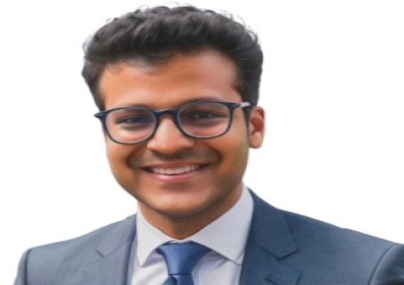
TrustBridge Rule of Law Foundation was established in 2022 by two Trilegal co-founders with the stated aim of improving the performance and behaviour of the state and its institutions, as well as private market participants, in a manner that aligns with the wider economic goals of the country. Renuka Sane, managing director of TrustBridge, discusses the gaps in India’s legal infrastructure, the role lawyers play at TrustBridge, and how the organisation measures success.
ALB: What was the motive behind setting up TrustBridge, and could you explain the need for an organisation like TrustBridge in India today?
Renuka Sane: TrustBridge was set up by Akshay Jaitly and Karan Singh, both co-founders of Trilegal as well. TrustBridge was set up with the belief that an essential role of the state is to provide the best possible framework for markets and private enterprises to flourish with due processes for all stakeholders. This means that the laws governing the economy must be fair, clear, predictable, transparent and responsive. While the 1991 reforms opened up the economy to private enterprise, India will be able to realise its true potential only through a reform of the infrastructure of laws and regulations that shape economic behaviours.
ALB: Could you explain some of the major gaps in India’s legal and regulatory framework and the projects and initiatives that TrustBridge is working on to address these?
Sane: India's legal and regulatory framework often lacks clarity, making its implementation challenging and inconsistent. Laws can be archaic and restrict new ideas and innovation.
The framework tends to be sceptical of and needlessly harsh on businesses. At the same time, it sometimes imposes entry barriers, making it “business-friendly” as opposed to “market-friendly,” thereby reducing competition, innovation and a sense of fair play. Regulators don’t provide reasoned orders or consider costs and benefits adequately before implementing regulations. Regulatory discretion may be inconsistently exercised, and this creates an environment of uncertainty, impeding investability.
TrustBridge is working in three areas to improve India’s regulatory environment. These include regulation of financial markets, energy transition, and the alternative dispute resolution environment. Our hope is that our foundational work in these areas could potentially be used to improve the policy framework and regulatory state capacity.
ALB: Can you discuss the role of lawyers in TrustBridge's work and how they contribute to the organisation's mission?
Sane: TrustBridge is an inter-disciplinary organisation with a mix of lawyers and economists. Lawyers help us understand the legal instruments that govern the regulatory landscape and court judgments that have shaped our thinking in this space. Their analysis of the law and understanding of the legal landscape are critical in keeping our work grounded in reality.
ALB: What specific challenges has TrustBridge identified in government contracting and litigation, and how does the organisation propose to improve these processes?
Sane: TrustBridge has identified a few issues, such as inappropriate risk allocation between public and private parties, failure of government parties to honour the terms of contracts they enter into, particularly payment, change in law, force majeure, contract variation etc., government parties being subject to many adverse arbitral awards and then challenging the majority of adverse arbitral awards and ultimately losing several of those challenges. There are several theories about why this might be, but systematic evidence is missing. TrustBridge proposes conducting data and evidence-based research to identify and explain the issues and further identify implementable solutions.
ALB: How does TrustBridge measure the success of its work, and what metrics does the organisation use to track progress towards its goals?
Sane: There are three pillars of success for us. The first is that the datasets and open-source tools we build and release in the public domain become the basis for output by other stakeholders in the system. We would welcome other researchers and organisations to be able to build upon the foundational blocks that come out of our efforts. Second, our findings get cited in other literature, and our methodology and approach get adopted by different agencies. Finally, we would be happy to provide feedback and input on policy on requests made by the state.


